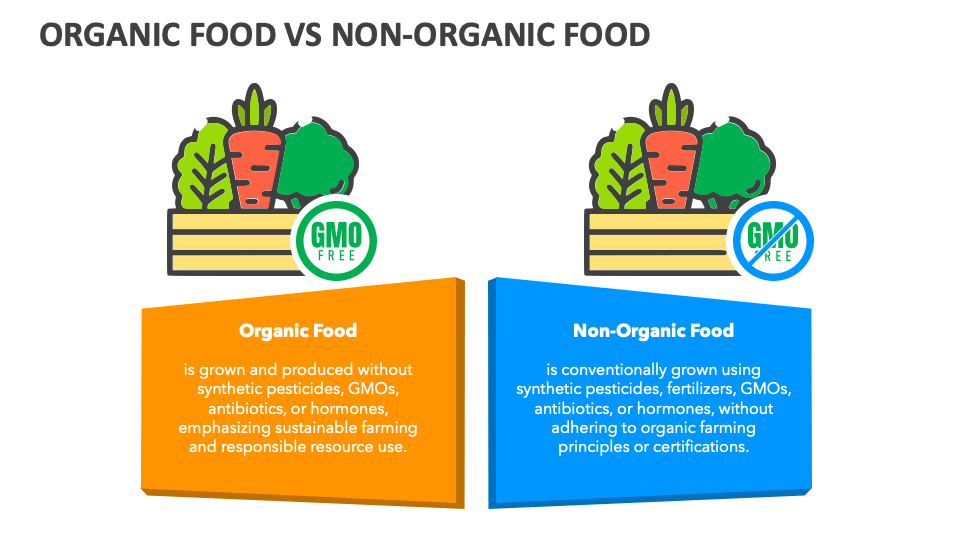What Is the Difference Between Organic and Non-Organic Foods?
The world of food labeling can be confusing, especially when it comes to terms like "organic." While many consumers associate organic with being healthier or better for you, the distinction goes beyond just nutrition.
This blog post will delve into the key differences between organic and non-organic foods, exploring the production methods, potential health benefits, and environmental impact.

Organic vs. Non-Organic: Production Methods
The core difference between organic and non-organic lies in how they're produced. Organic farming emphasizes natural processes and avoids synthetic substances:
- Organic: Organic farms rely on practices like crop rotation, natural fertilizers (compost, manure), and biological pest control to maintain soil health and manage pests. They also have stricter regulations regarding the use of antibiotics and growth hormones in livestock.
- Non-Organic (Conventional): Conventional farming often utilizes synthetic fertilizers, pesticides, and herbicides to maximize crop yields and control pests. Additionally, antibiotics and growth hormones may be routinely administered to livestock raised conventionally.
Nutritional Value and Health Benefits
While organic food often gets touted as being more nutritious, research on the health benefits is not entirely conclusive. Some studies suggest slightly higher levels of certain antioxidants in organic produce. However, the overall nutritional differences tend to be minimal.
A bigger factor influencing nutrient content is likely freshness, variety, and overall diet.
Environmental Impact
Organic farming practices generally have a lower environmental impact than conventional methods. Here's why:
- Reduced reliance on synthetic chemicals: Organic farming minimizes the pollution of soil and waterways from synthetic fertilizers and pesticides.
- Improved soil health: Organic practices promote soil health by fostering beneficial microorganisms and promoting biodiversity.
- Animal welfare: Organic standards often require better living conditions and reduced use of antibiotics in livestock.
Choosing Between Organic and Non-Organic
Ultimately, the decision of whether to buy organic comes down to personal preference, budget, and values. Organic food tends to be more expensive, so it's important to weigh the cost against potential benefits.
Here are some tips for making informed choices:
- Focus on organic for thin-skinned fruits and berries: These may have higher pesticide residues conventionally.
- Buy seasonal and local produce: Freshness often trumps organic certification in terms of nutrient content.
- Consider frozen organic options: Frozen organic fruits and vegetables can be a cost-effective and nutritious choice.
Remember, every bit counts! Even incorporating some organic options into your diet can make a positive difference for your health and the environment.

.jpg)